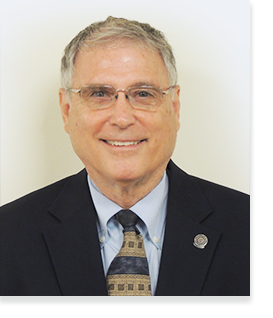|
As Workcred Turns 10, Quality Credentials are a Sign of the Times

|
As we reach a milestone anniversary this year, we want to express our gratitude to our many partners who have worked with us to improve the U.S. credentialing system. In the decade since our launch,
Workcred continues to build connections with industry and academic partners, expand on research efforts, and roll out new resources—from interactive graphics to national workshops.
|
Kicking off 2024, we interviewed three members of Workcred’s board of directors to share their expert insights on leading credentialing and workforce trends.
They acknowledged that while strategic workforce planning is a priority for many organizations, upskilling talent and identifying which credentials hold the most value for employees and businesses remain key challenges.
The fact is, so many individuals and employers lack information on how to distinguish quality credential programs from those of lesser value. Fortunately,
from years of research, we know that standards can be part of the solution. If you haven’t seen it already, I encourage you to read this recent Workcred blog on how comprehensive, balanced, and effective standards guiding personnel certifications,
assessment-based certificate programs, and workplace learning make up a “tripod” of guidance that can meaningfully contribute to a skilled workforce.
Cultivating Quality is at the Root of Everything We Do

We’ve been busy sharing our findings about what constitutes quality credentials at various conferences across the country. Most recently, we shared how standards support non-degree credentials at ANSI’s March Company Member Forum.
We also provided insights on credentials’ use in post-secondary education, as well as industry perspectives on their use and value, during the ASME Mechanical Engineering Education Summit in Atlanta. And, during a recent hybrid event that we co-hosted with ANSI and Columbia University,
participants discussed how increasing standards awareness can help grow a standards-literate workforce, as part of a listening session on the U.S. Government National Standards Strategy for Critical and Emerging Technology (USG NSSCET),
which aims to strengthen U.S. leadership and competitiveness in advanced technologies.
Later this month, you can catch us during the Higher Learning Commission Annual Conference, where we will join community college partners on April 14 in Chicago to discuss “Embedding Certifications within Degrees,” as part of ECMC Foundation
grant to assist institutions in embedding industry-recognized certifications in associate degree programs. And as Workcred enters the last year of the grant, we are working with college partners to develop case studies to share promising practices and insights from the development of these pathways.
Workcred and its partners will also release two playbooks to focus on the issues related to accreditation and themes that emerged across the community colleges as they implemented these pathways.
And jumping ahead to this fall, connect with us at the 2024 Convergence: Credential Innovation in Higher Education conference to join with leaders from across the postsecondary landscape who are looking to transform learner mobility through credential innovation.
Uniting Forces with New Leaders to Grow Our Reach
As we build on our efforts and look to the future, I am excited to welcome Dr. Talisa Jackson to the Workcred team. Dr. Jackson brings extensive experience in project management to her role as senior manager of programs.
Dr. Jackson has an impressive resume that reflects her ability to lead large-scale training initiatives and programs, and a track record that demonstrates success in working with diverse audiences.
We are excited to welcome her in this new capacity, and for the value that her unique skillset will bring to Workcred's team and mission.
We are also pleased to announce that Dr. Sarah DeMark of Western Governors University (WGU) has joined the Workcred board of directors for a three-year term. Dr. DeMark is a recognized leader in developing innovative and impactful large-scale education programs for both the education and corporate sectors.
She currently serves as a vice provost within the workforce intelligence and credential integrity division, and executive director of the Open Skills Network at WGU.
Of course, we would not be as effective or successful without the support of our entire team, Board of Directors, and many esteemed colleagues and partners, such as yourselves.
With gratitude and cheers for another successful 10 years!

Roy A. Swift
|
